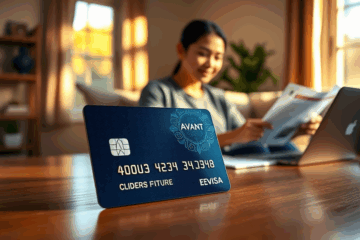The True Value of a Prepaid Credit Card
Prepaid Credit cards have become an increasingly popular financial tool for those seeking to control their spending effectively.
This article will explore the benefits and drawbacks of using prepaid credit cards, including how they can aid in budgeting, the ease of use without credit checks, and the potential downsides such as fees and lack of credit history building.
By examining these aspects, we aim to provide a comprehensive understanding of how prepaid credit cards can fit into your financial strategy.
Understanding Prepaid Credit Cards
Prepaid credit cards are unique financial tools that operate differently from traditional credit cards.
Unlike conventional credit cards, which involve extending a line of credit, prepaid cards require users to load funds onto them before making any transactions.
This prepaid approach eliminates the risk of incurring debt or paying interest, as the amount you can spend is strictly limited to the amount available on the card.
One of the most advantageous aspects of prepaid credit cards is that they require no credit check needed to acquire, making them accessible to a broad range of consumers including those with limited or poor credit histories.
The process of using a prepaid credit card starts with loading funds, which can typically be done through a bank transfer, cash deposit, or direct deposit from an employer.
This process resembles that of a simple bank transaction and once funds are loaded, the card functions similarly to a debit card.
However, unlike traditional credit cards, prepaid cards do not offer revolving credit, meaning users cannot spend beyond their available balance, thereby promoting better financial discipline.
Common use cases for prepaid credit cards include everyday online shopping and travel safety, where using a regular debit or credit card might expose the cardholder to fraud risk.
With a prepaid card, individuals protect their primary bank accounts from unauthorized transactions and enjoy a manageable spending limit, which helps in learning effective budgeting skills.
Moving forward, the subsequent sections will delve into the pros and cons of prepaid credit cards, providing a thorough exploration of their practical benefits and potential downsides.
Key Benefits of Using a Prepaid Card
Prepaid credit cards offer several advantages that are particularly appealing to individuals looking to enhance their financial management without the burden of conventional credit systems.
By allowing users to load a specific amount onto the card, these cards help maintain strict control over spending, making them ideal for those who wish to keep tabs on their finances.
For individuals wary of credit checks, prepaid cards provide an accessible alternative while also offering a layer of security against potential fraud.
The use of these cards effectively supports prudent budgeting techniques.
- Budget control: Enforces spending limits by capping expenses at the loaded amount.
- Avoiding debt: Ensures that spending remains within means without accruing debt.
- No credit checks: Convenient for users without getting involved in a credit verification process.
- Fraud protection: Limits potential financial damage in case of card loss or theft.
Key Drawbacks to Keep in Mind
While prepaid credit cards offer convenient spending management, several limitations require consideration.
Common fees, for instance, add layers of cost when not monitored, as highlighted by OneUnited Bank.
Therefore, it’s crucial to understand these frequent charges in order to avoid financial surprises.
Furthermore, some cards face restricted acceptance at specific venues, causing potential inconveniences when trying to make a purchase.
- Transaction fees: small charges can accumulate swiftly.
- Maintenance fees: monthly upkeep can exceed initial benefits.
- Reloading fees: topping up your balance isn’t free.
- No credit building: some may find this lack of financial growth unsuitable.
This inability to build credit history is a relevant shortcoming, especially for those intending to enhance their credit score.
For example, unlike traditional credit cards, prepaid cards do not report your spending to credit bureaus, resulting in no credit building as shown by Los Angeles County’s consumer insights.
This can severely impact financial opportunities and limit future borrowing capabilities.
Recognizing these drawbacks ensures better financial planning and the wise use of prepaid cards.
Who Might Benefit Most
Teens often benefit from using prepaid credit cards because they offer a safe and manageable way to learn about budgeting without the risks associated with traditional credit cards.
These cards allow parents to load a specific amount of money, facilitating financial responsibility while avoiding the high fees and interest rates of other credit options.
Furthermore, there are no credit checks involved, making prepaid cards an easily accessible option for those developing their financial acumen.
According to Coherent Market Insights, the flexibility and broad acceptance of prepaid cards appeal to a younger demographic immersed in e-commerce and digital payments.
For people with poor credit, prepaid credit cards offer a way to engage in cashless transactions without the need for a credit score check, as highlighted in Mercatus research.
Although these cards do not help in building credit history, they provide individuals excluded from traditional banking opportunities a critical financial tool.
This aligns with the growing demand for financial inclusion solutions, driven by the rise of digital payments and e-commerce.
The simplicity and security of prepaid cards help these users manage expenses without the fear of overspending, contributing to a more secure financial lifestyle.
Prepaid vs Traditional Credit Cards
| Aspect | Prepaid Card | Traditional Card | Implication |
|---|---|---|---|
| Credit Checks | None | Required | Easier access but no credit building |
| Spending Limits | Predetermined by user | Set by issuer based on credit | Better budget control with prepaid options |
| Fee Structures | Varies, often with transaction fees | May include annual and interest fees | Balancing upfront fee against potential credit benefits |
| Ability to Build Credit | None | Builds credit if managed well | Crucial for financial growth |
Prepaid cards let you load funds without needing credit checks, providing a strict limit on spending but involve potential fees for overseeing transactions
.
Traditional credit cards, however, require a credit check and can help build your credit history, provided you manage them responsibly.
These differences are significant when choosing the right financial tool.
If controlling spending and avoiding debt is your main goal, a prepaid card could be ideal.
However, if improving or establishing a credit score is more important, a traditional credit card may be a better option for you.
Prepaid Credit cards offer a unique way to manage finances with pros and cons worth considering.
Ultimately, they can be a helpful tool for budgeting, but individuals should weigh their limitations regarding credit history before making a decision.



0 Comments